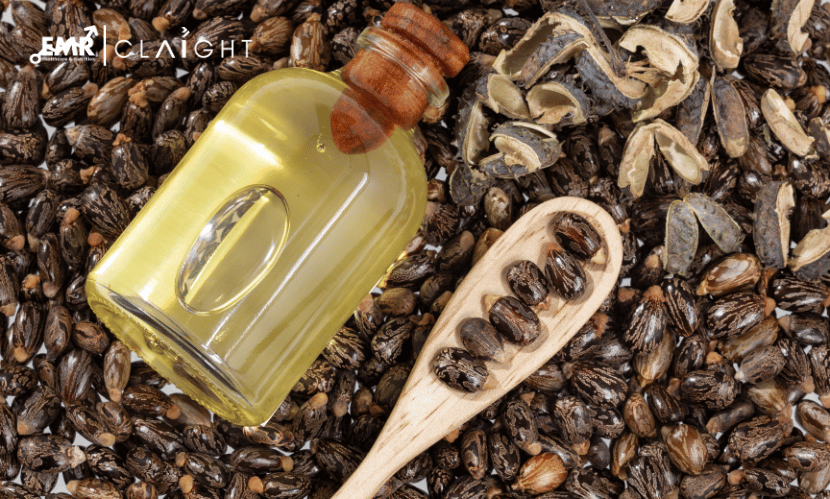Propyne, also known as methylacetylene, is a hydrocarbon belonging to the alkyne group. It is a colourless, flammable gas primarily used in chemical synthesis, welding, and industrial applications. With its unique chemical properties, propyne serves as a precursor in the production of specialty chemicals and materials. The increasing demand for propyne in the petrochemical and manufacturing sectors highlights its industrial importance. Establishing a propyne manufacturing plant requires a detailed understanding of its production processes, raw material requirements, and compliance with safety and environmental regulations.
Understanding Propyne Manufacturing
The production of propyne involves isolating it from hydrocarbon streams or synthesising it through controlled chemical reactions. Precision and adherence to safety standards are critical throughout the process.
-
Raw Material Sourcing
- Hydrocarbon Feedstocks: Propyne is commonly derived from natural gas or petroleum-based hydrocarbon streams.
- Catalysts and Chemicals: Specific catalysts may be used to facilitate synthesis or separation processes.
-
Production Methods
- Hydrocarbon Cracking: Propyne is extracted as a byproduct during the cracking of hydrocarbons in petrochemical plants.
- Chemical Synthesis: Controlled reactions can produce propyne directly from precursor compounds.
-
Purification
The crude propyne obtained from production is purified through distillation and other separation techniques to remove impurities and ensure high purity. -
Compression and Storage
The purified propyne gas is compressed and stored in high-pressure cylinders or tanks designed to handle flammable materials. -
Quality Control
Rigorous testing is conducted to verify the purity, chemical stability, and compliance with industrial standards. -
Packaging and Distribution
The product is packaged in cylinders or bulk containers with proper labelling to ensure safe handling and transportation.
Get a Free Sample Report with Table of Contents@ https://www.expertmarketresearch.com/prefeasibility-reports/propyne-manufacturing-plant-project-report/requestsample
Key Requirements for Setting Up a Manufacturing Plant
-
Location and Infrastructure
The plant should be located in an industrial zone with access to hydrocarbon feedstocks, utilities, and transportation. Facilities must include production units, storage tanks, and safety systems. -
Machinery and Equipment
Essential equipment includes cracking units, reactors, distillation columns, compressors, and storage tanks. Advanced systems ensure efficiency and safety. -
Workforce and Training
Skilled personnel are required to operate machinery, monitor production processes, and ensure safety compliance. Regular training on handling flammable gases is crucial. -
Raw Material Procurement
Reliable supply chains for hydrocarbon feedstocks and catalysts ensure uninterrupted production and consistent quality. -
Regulatory Compliance
Compliance with environmental and industrial safety standards is essential. Certifications and regular audits enhance credibility and market acceptance.
Applications of Propyne
-
Chemical Synthesis
Propyne serves as a precursor in the production of specialty chemicals, polymers, and intermediates used in various industries. -
Welding and Cutting
It is used in metal welding and cutting applications due to its high flame temperature and stability. -
Pharmaceutical Industry
Propyne is used in the synthesis of active pharmaceutical ingredients (APIs) and other medicinal compounds. -
Fuel Applications
The gas is used as an alternative fuel in certain industrial applications requiring high heat and efficiency. -
Research and Development
Propyne’s unique properties make it valuable in scientific studies and experimental setups in laboratories.
Benefits of Establishing a Propyne Manufacturing Plant
-
Growing Market Demand
The increasing use of propyne in chemical synthesis and industrial applications ensures a stable market. -
Versatile Applications
Propyne’s wide range of uses across industries provides diverse revenue streams. -
Export Opportunities
The global demand for specialty chemicals creates significant opportunities for exporting high-purity propyne. -
Technological Advancements
Innovations in production methods and applications offer growth potential for manufacturers.
Challenges in Manufacturing
-
Safety Concerns
Propyne is highly flammable, necessitating stringent safety measures during production, storage, and transportation. -
Raw Material Costs
Fluctuations in the prices of hydrocarbon feedstocks can impact production costs. -
Regulatory Compliance
Adhering to strict environmental and safety standards requires meticulous planning and investment. -
Market Competition
The specialty chemicals market is competitive, requiring innovation and effective branding to stand out.
Future Trends in Propyne Manufacturing
The propyne industry is evolving with advancements in production technology and new applications. Key trends include:
- Green Manufacturing: Efforts to develop eco-friendly production methods to minimise environmental impact.
- Advanced Catalysis: Research into more efficient catalysts to improve production yields and reduce costs.
- Innovative Applications: Expansion of propyne use in renewable energy systems and high-performance materials.
- Automation and AI: Integration of automated systems and artificial intelligence for real-time monitoring and process optimisation.
